Michael Austin Famous Quotes
Reading Michael Austin quotes, download and share images of famous quotes by Michael Austin. Righ click to see or save pictures of Michael Austin quotes that you can use as your wallpaper for free.
Civic flattery - or a political culture that allows people to appear to engage in civic discourse without ever having their opinions, or even their claims of fact, seriously challenged - is ultimately more damaging to democracy than civic enmity. When we incorporate civic flattery into our personal relationships, we get shallow, insincere friendships. When we use it as the basis for political alliances, we get echo chambers. And when a skilled political manipulator flatters a large portion of the population in an attempt to acquire and consolidate power, we get perhaps the most dangerous test that a democratic society can ever face: the emergence of a demagogue.
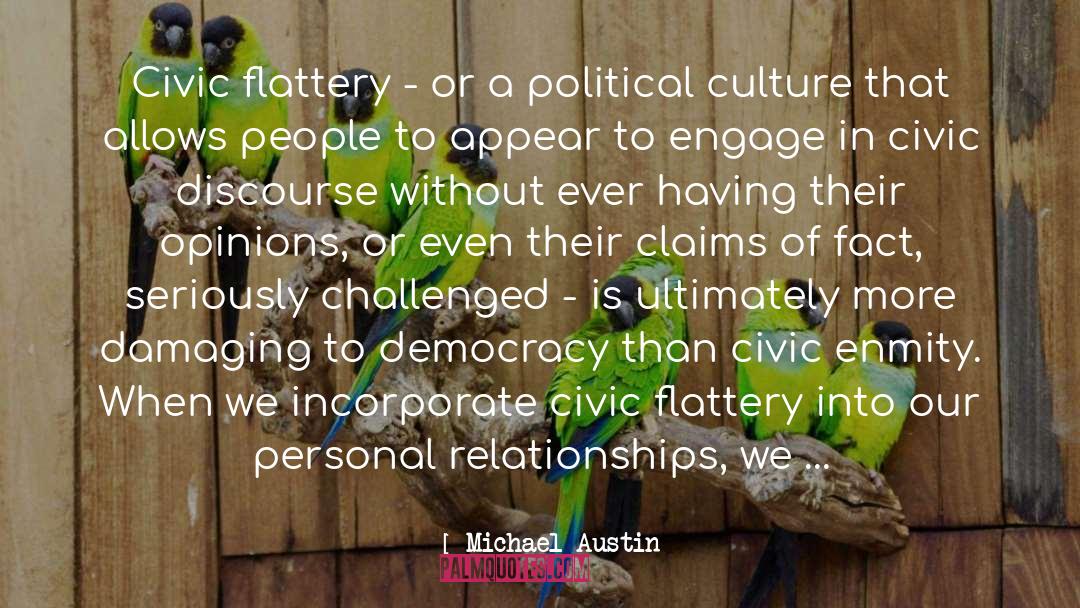
None of us wants to reject our core assumptions about the universe and start all over again. It is hard work, and it deprives us of nearly everything that makes us feel secure.
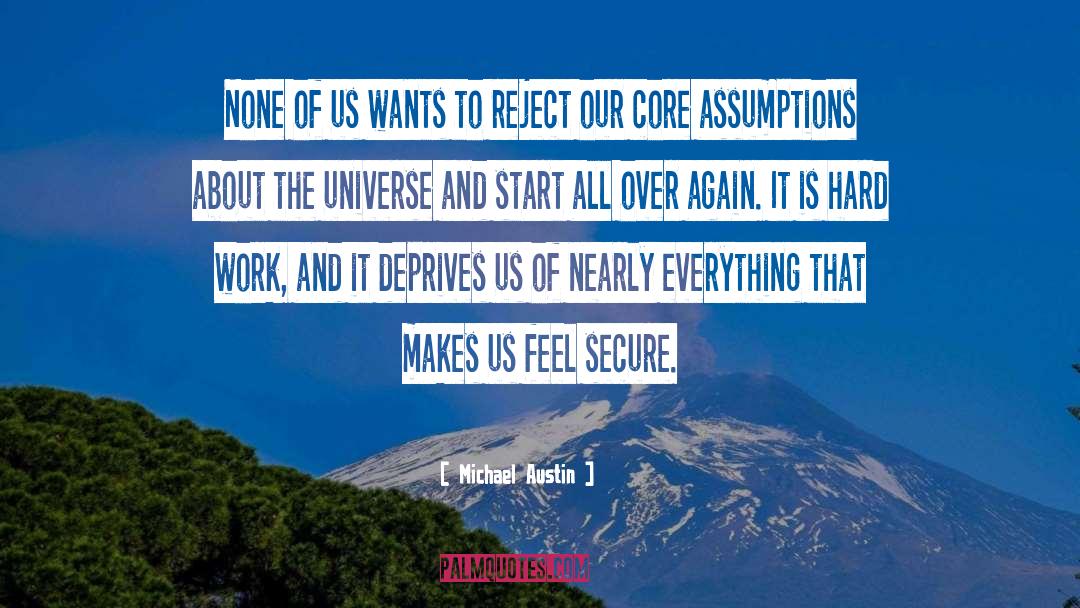
Arguing in good faith means being willing to consider the possibility that we are wrong and that the person we are arguing with is right. It means constantly monitoring and trying to control for our own biases. And it means being willing to revise our positions once we realize that we can no longer defend them. This doesn't require self-doubt or indecision. But it does require humility and enough respect for reality to understand that we really will be wrong from time to time. Once we admit this, we should also be able to see that always acknowledging the possibility that we might be wrong is the only way to make sure that we are always at least right about something.
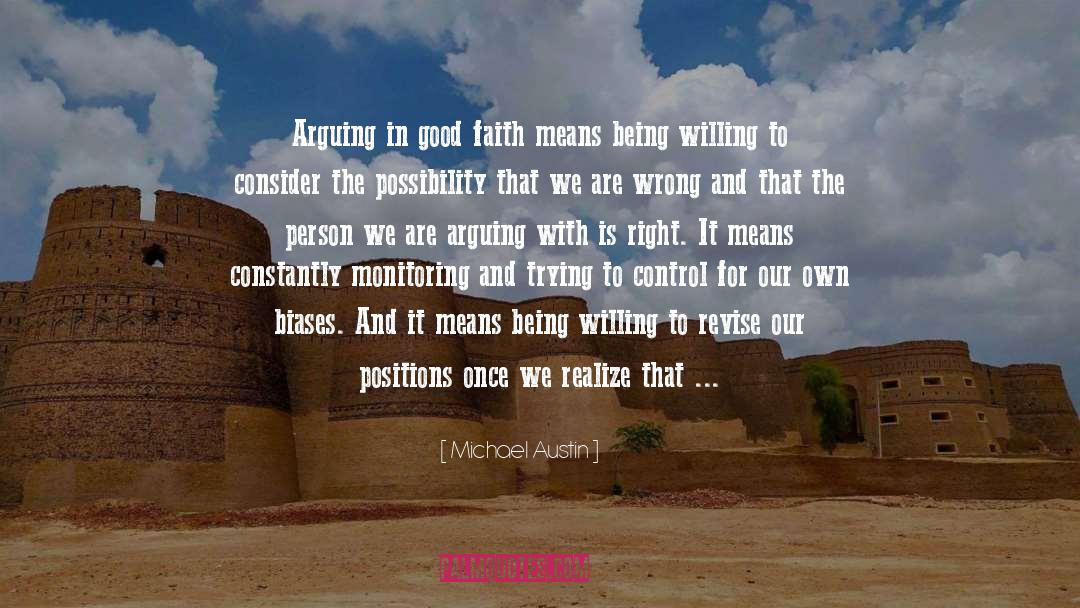
Yale political scientist Alexander Coppock conducted a series of experiments designed to measure incremental changes in political opinion when people are presented with new information about a topic. ... [H]e was able to draw four consistent conclusions about the way that our brains react to new political information:
1. Effects are nearly uniformly positive: individuals are persuaded in the direction of evidence.
2. Effects are small: changes in opinion are incremental.
3. Effects are relatively homogenous: regardless of background, individuals respond to information by similar degrees.
4. Effects are durable: at a minimum, effects endure for weeks, albeit somewhat diminished. ...
This means that people do not change their opinions dramatically in a short amount of time. But it also means that partisans don't reject good arguments and good evidence when they encounter it just because it does not conform to their worldview.
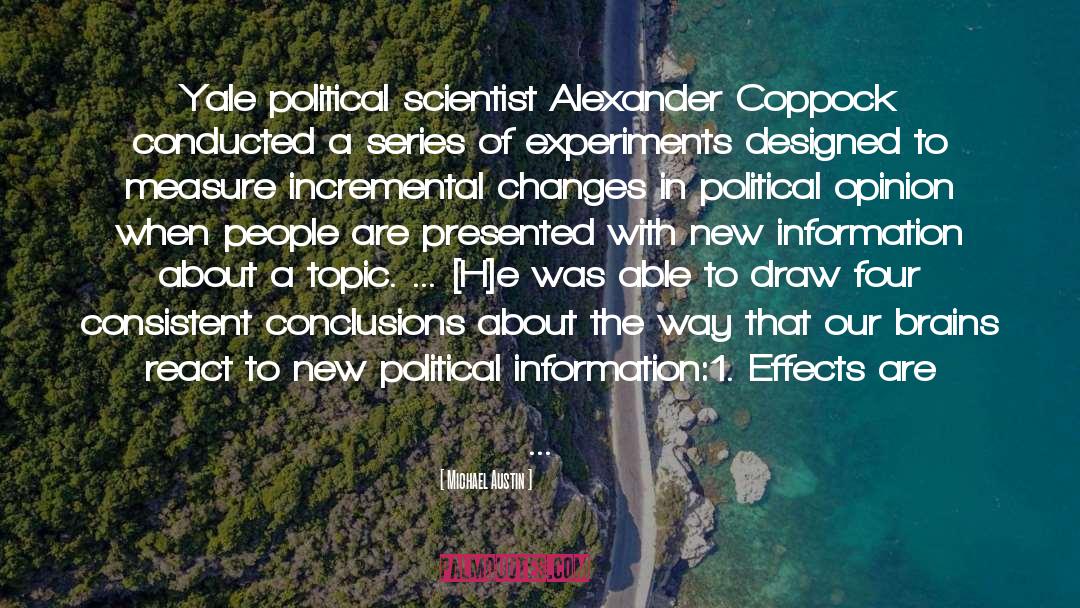
Not everybody believes in the possibility of political persuasion. Many people see political positions as expressions of innate personality traits - hard-wired into us either by our genes or by an irreversible process of socialization. Why should we waste time trying to be persuasive when people never really change their minds? This is a reasonable concern.
The idea that persuasion doesn't work comes from a bad application of good science. A substantial body of research suggests that our political beliefs are shaped by more or less fixed psychological characteristics ... Research like this, however, tells us about the difficulty of conversion, not persuasion. These are not the same things. We too often misrepresent the task of political persuasion by thinking of the most strident partisan we have ever encountered and imagining what it would take to turn that person into an equally strident partisan for the other side. This sort of Paul-on-the-Road-to-Damascus conversion rarely happens in politics. Most people don't change their fundamental values, and if we expect them to, we are going to be very disappointed.
But we usually don't need people to change their fundamental values in order to convince them to adopt a particular position. The fact that people have fundamental values makes it possible to persuade them by appealing to those values. But we have to find values that we really share.
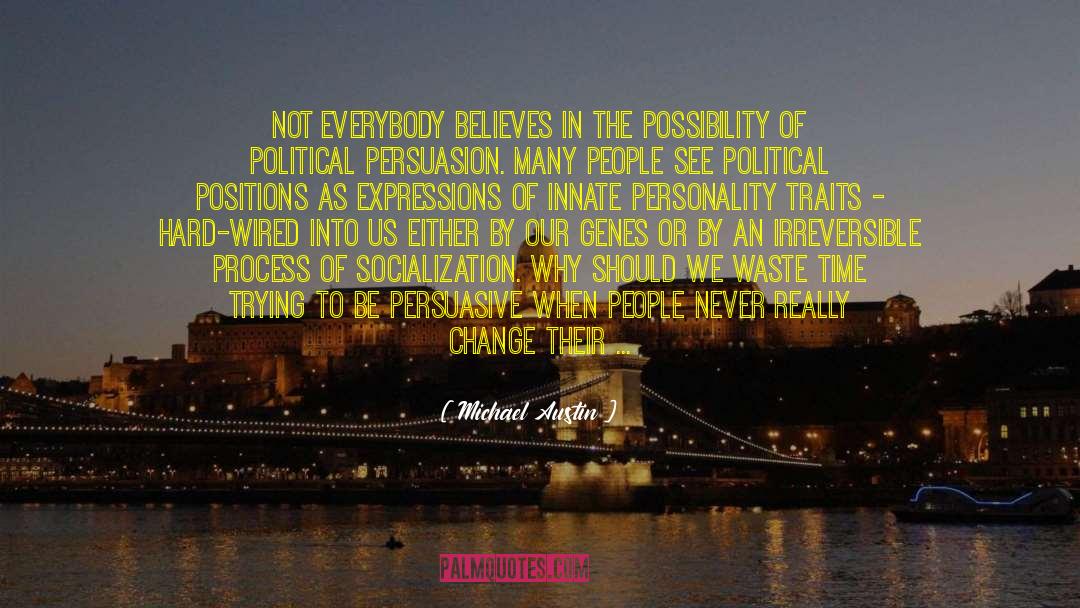
We treat others badly not because we don't understand how people should be treated but because we don't really consider them people.
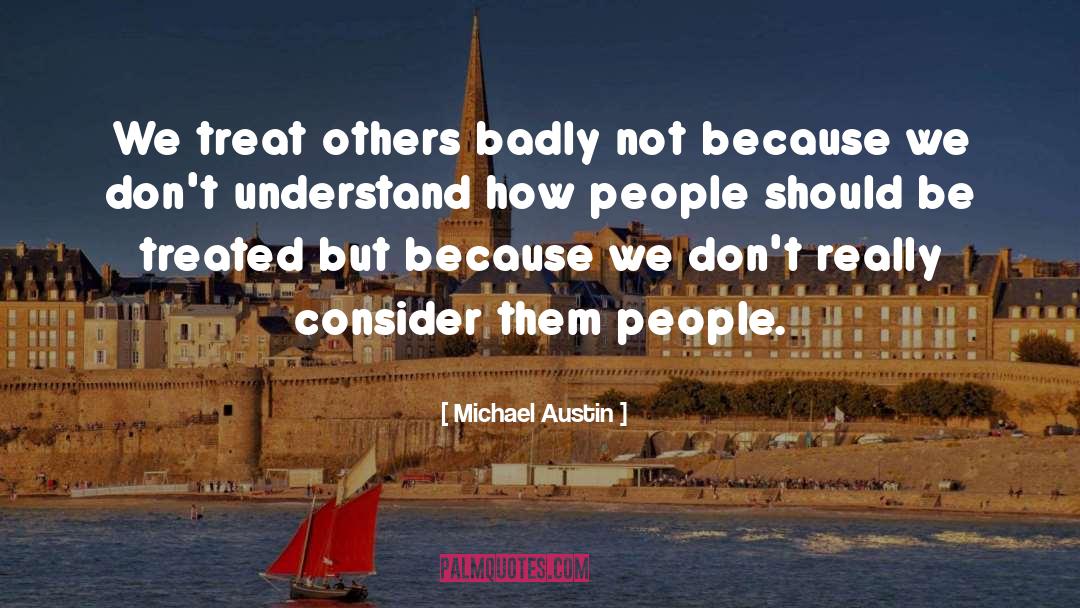
Small acts of persuasion matter, because there is much less distance between people's beliefs than we often suppose. We easily confuse the distance between people's political positions with the intensity of their convictions about them. It is entirely possible for people to become sharply divided, even hostile, , over relatively minor disagreements. Americans have fought epic political battles over things like baking wedding cakes and kneeling during the national anthem. And we once fought a shooting war over a whiskey tax of ten cents per gallon. The ferocity of these battles has nothing to do with the actual distance between different positions, which, when compared to the entire range of opinions possible in the world, is almost negligible.
None of this means that we can persuade our opponents easily. Persuading people to change their minds is excruciatingly difficult. It doesn't always work, and it rarely works the way we think it will. But it does work, and the fact that it works makes it possible for us to have a democracy.
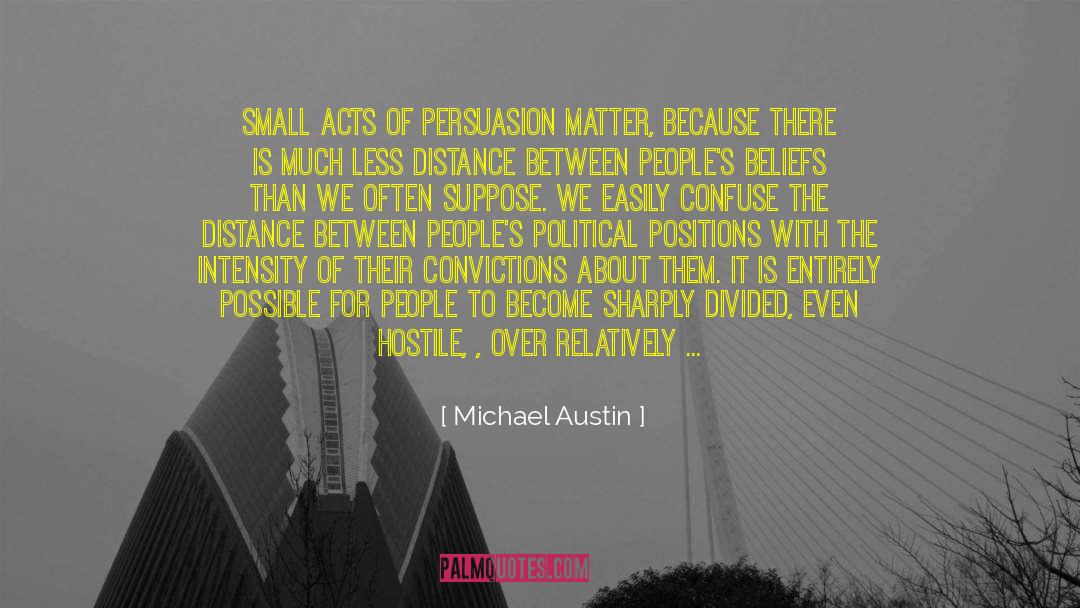
Most of us don't really fear political disagreements with our close friends. We fear not being liked and respected by people we like and respect. Challenging someone's political beliefs can signal (correctly or not) a lack of respect or affection. One way to prevent this from happening is to say something like 'I think you are a great person, and I value our friendship, so when I disagree with you it's because I value your opinion and want to learn more about how you see things.' If someone manages to communicate this idea to me, then I'm probably not going to hesitate to express my real opinions about controversial issues. It also helps if we don't call each other 'stupid,' 'evil,' or 'crazy' when 'I don't quite see it that way; help me understand what you mean' will do just fine.
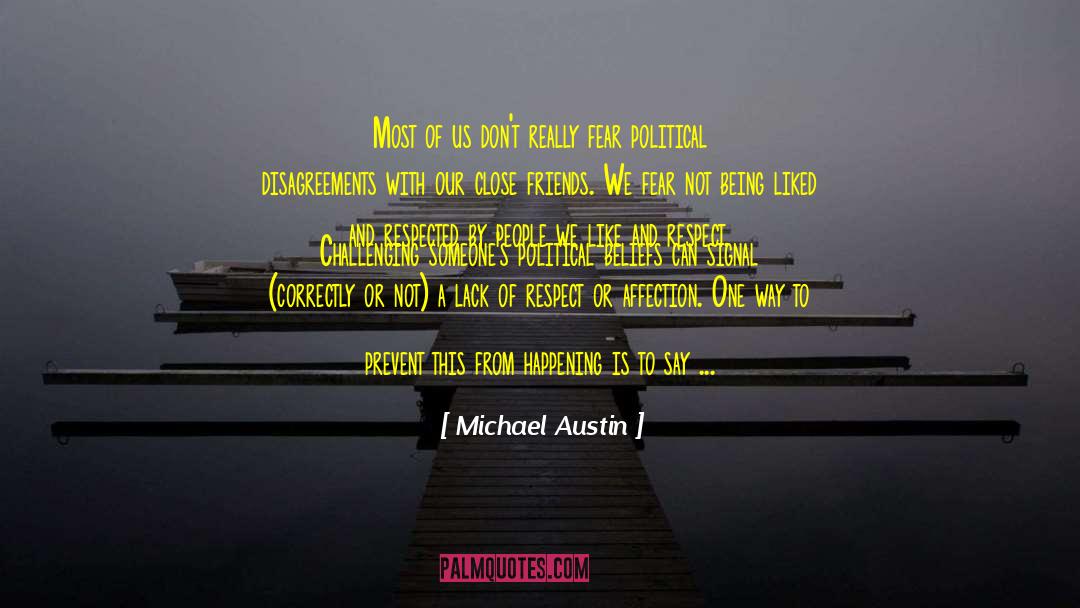
Civic charity is easy to talk about but tremendously difficult to practice - mainly because a lot of people don't reciprocate. Some people will be rude and obnoxious and will laugh at us when we try to engage with them charitably. They will see our generosity as a sign of weakness and take advantage of our good nature to abuse us further. We will forgive them the requisite seventy times seven times, and they will keep on offending us. Charity always works this way, both the civic kind and the 'love-other-people-like-God-loves-you' kind.
We need not think, however, that we are shirking our duties or abandoning our causes when we decline to angrily denounce those on the other side or to treat them like subhuman imbeciles. Charitable engagement does not always change people's hearts and minds, but the number of times it has done so is not zero - which gives charity a better track record than anger, contempt, and derision. Ultimately, though, mature and thoughtful people do not allow the way other people treat them to determine how they treat other people; when we do this, we surrender an enormous amount of power to people who do not wish us well.
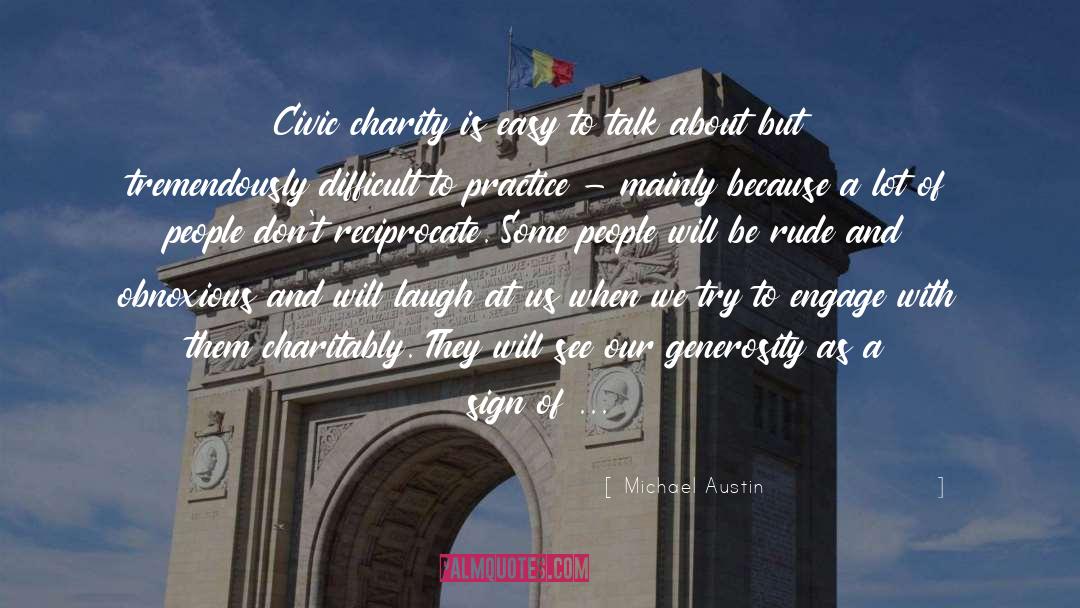
Can people be persuaded?' is a very different question from 'Can arguments be won?' People change their minds about things all the time, but I'm not sure that anybody ever wins an argument. Persuasion is not a zero-sum game. It occurs when somebody moves, even slightly, away from one position and toward another. It is entirely possible for two (or more) people to move closer to each other's positions during an argument without either one being able to claim victory over the other.
But we like to win, and we hate to lose, so the fact that people don't usually win arguments doesn't stop most of us from trying. And we all think we know what winning means: It means crushing opponents and making them cry. It means humiliating them in front of a crowd. And it means displaying our power and our rightness for all the world to see and acknowledge. And this means that we often end up trying to win by employing rhetorical strategies that are fundamentally incapable of persuading anybody of anything. And that looks a lot like losing.

When somebody summarizes an argument thoughtfully before offering a counterargument, the resulting debate tends to be more meaningful and productive. Much of what passes for argument in our society consists of people badly misrepresenting each other's arguments and responding to points that another person is not making. This inevitably leads to frustration and anger and a feeling of being rhetorically manipulated instead of honestly challenged. Correctly paraphrasing somebody's position makes it much harder to misrepresent that position while trying to argue against it.
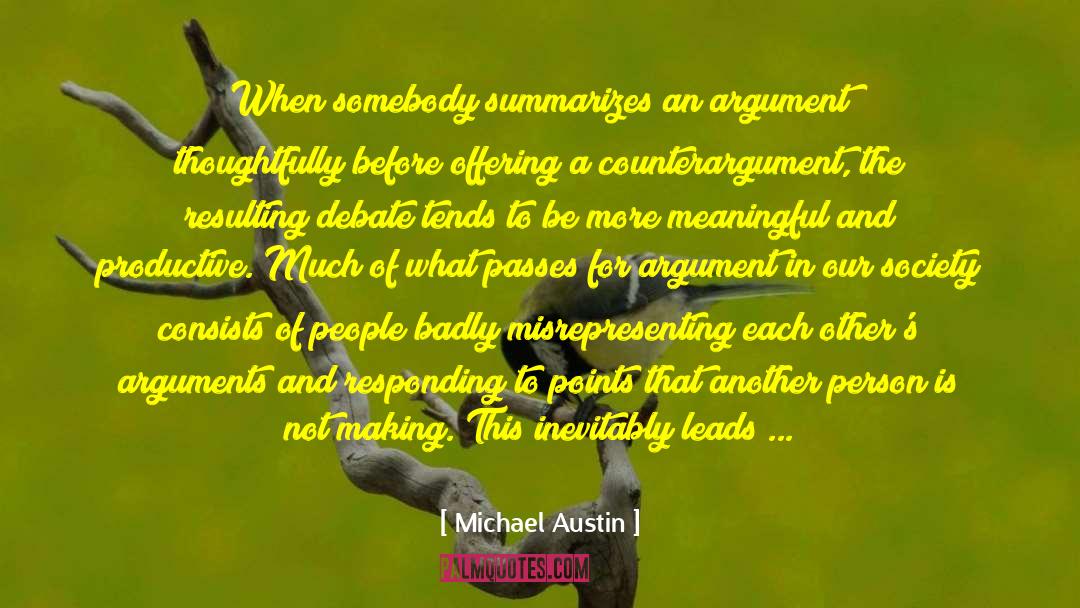
The actual rewards that come from arguing with other people have nothing to do with winning and losing. A good argument helps us refine our own ideas and discover where our reasoning is the weakest. Other people's opposition can help us turn our own half-formed ideas into clear assertions backed by solid reasoning. And setting our ideas and opinions against someone else's helps us know each other better, which makes us better friends. We get these benefits from arguments when we collaborate with a partner. We do not get them when we try to destroy an enemy. That is how non-zero-sum games work.
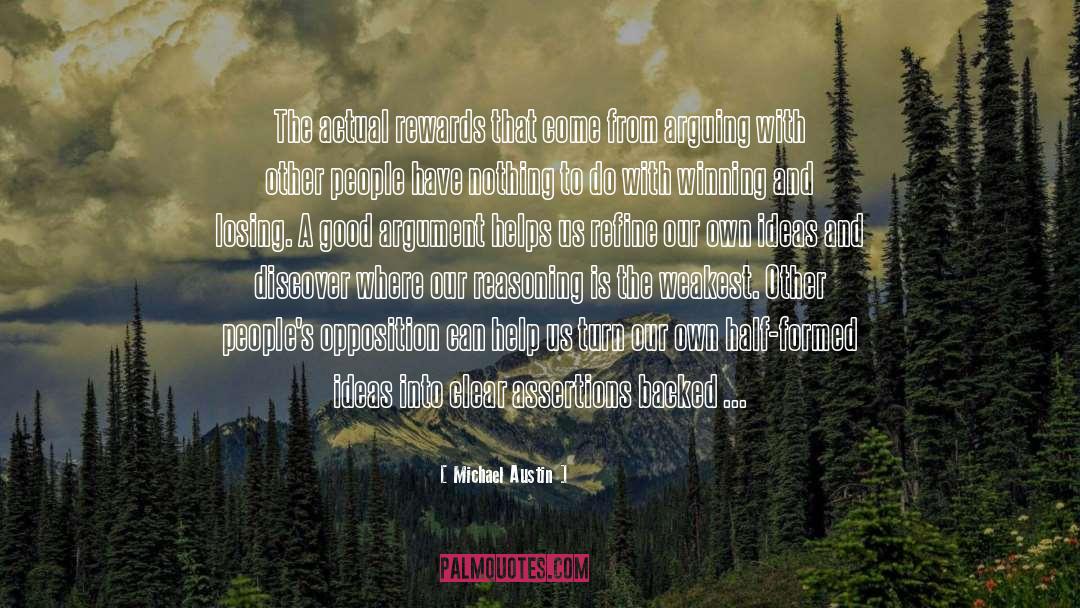
[Ralph Waldo] Emerson believed that any friendship worthy of the name consisted of two essential elements: tenderness, or honest affection not tied to any material interest, and truth, or a willingness to speak sincerely without fear that frankness will destroy the relationship. Simply agreeing with everything someone says is a sign not of friendship but of insincerity. 'Better be a nettle in the side of your friend than his echo,' he writes. Friendship should be 'an alliance of two large, formidable natures, mutually feared, before yet they recognize the deep identity which, beneath these disparities, unites them.
![Michael Austin Quotes: [Ralph Waldo] Emerson believed that Michael Austin Quotes: [Ralph Waldo] Emerson believed that](https://palmquotes.com/author/michael-austin-quotes-1535155.jpg)
